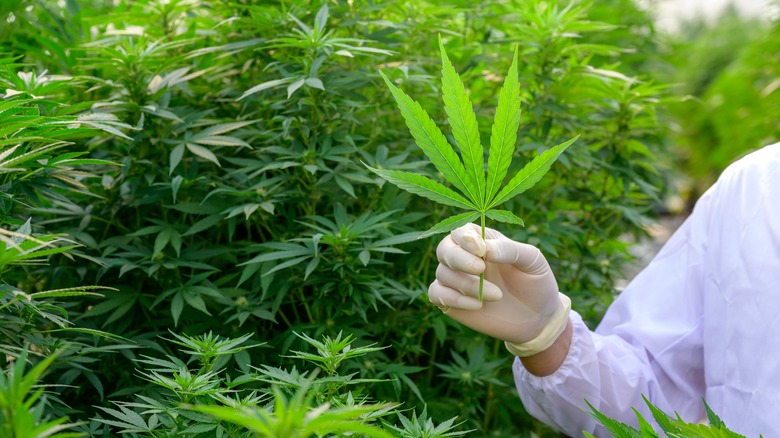The Current Challenges Of Cannabis Scientific Research
While many states have decriminalized cannabis for medical and recreational use, the federal government continues to list cannabis as a Schedule I drug. That means the United States Drug Enforcement Administration (DEA) considers cannabis a drug with "no currently accepted medical use and a high potential for abuse." On the DEA's list of controlled substances, cannabis is more restricted than cocaine or methamphetamine, two highly addictive and dangerous drugs listed under Schedule II. But the restrictions on cannabis availability are blocking researchers from coming to a consensus as to what extent cannabis has medical use.
According to Healthline, many researchers disagree with the scheduling of marijuana. Carrie Cuttler, Ph.D., an assistant professor of psychology at Washington State University and a researcher involved with the University's Center for Cannabis Policy, Research, and Outreach, says, "The current classification of cannabis as a Schedule I drug doesn't make sense. It does have medicinal properties and a pretty low potential of abuse."
Recently, the federal government showed signs of a willingness to review the federal cannabis classification, beginning with pardoning people convicted of simple federal marijuana possession. The Brookings Institute calls Biden's request for the Attorney General to review the scheduling of cannabis under the Controlled Substances Act, "the most significant step to reform the federal cannabis policy of any president in American history."
The implications of disregarding cannabis on patients' health
Descheduling marijuana could significantly free up researchers' ability to conduct more extensive studies into the benefits and risks of cannabis, including high-potency THC extracts. R. Lorraine Collins, Ph.D., professor and associate dean for research in the University at Buffalo's School of Public Health and Health Professions, tells Healthline, "To do research that involves administration of cannabis to a human participant, you have to have three levels of [federal] approval." Researchers must gain approval from the Drug Enforcement Agency (DEA), Food and Drug Administration (FDA), and National Institute on Drug Abuse (NIDA). Then, they must obtain approvals from the state where they are conducting the research.
The red tape can take around a year and a half to get through before a years-long study can even start, significantly delaying clinical trials. According to a 2017 article in Pharmacy and Therapeutics, those who oppose the use of medical marijuana state that there is a lack of research on the benefits and risks of cannabis use. But as long as the current roadblocks to research remain, it's unlikely many of those trials will come to fruition.
Dr. Igor Grant, a psychiatry professor and director of the Center for Medicinal Cannabis Research at the University of California, San Diego, says removing cannabis from Schedule I classification "would solve a lot of these problems that we've been talking about," (via National Public Radio).


